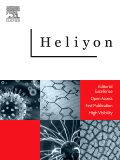Stat News Gut Check questions whether Clinical Trials overstate the effectiveness of cancer drugs for most patients. A recent piece in JAMA Oncology and a 2016 study looking at differences in trial patients versus regular patients may indicate that they do.
Hey Medical Librarians, it’s time to roll up our sleeves and get acquainted with the new MeSH Browser!
From the ACRLog (Association of College and Research Libraries) comes a timely discussion on of the importance – and difficultly – of asking critical questions. On Critical Habits of Mind, by Veronica Arellano Douglas concludes, “Critical questioning is not just an information literacy or academic skill, it’s a life practice and habit of mind we’ll need in the years to come.” With the confusion and uncertainty following the election and the debate about fake news gaming social media algorithms, it is crucial for everyone, not just librarians or researchers, to practice and teach critical thinking skills.
